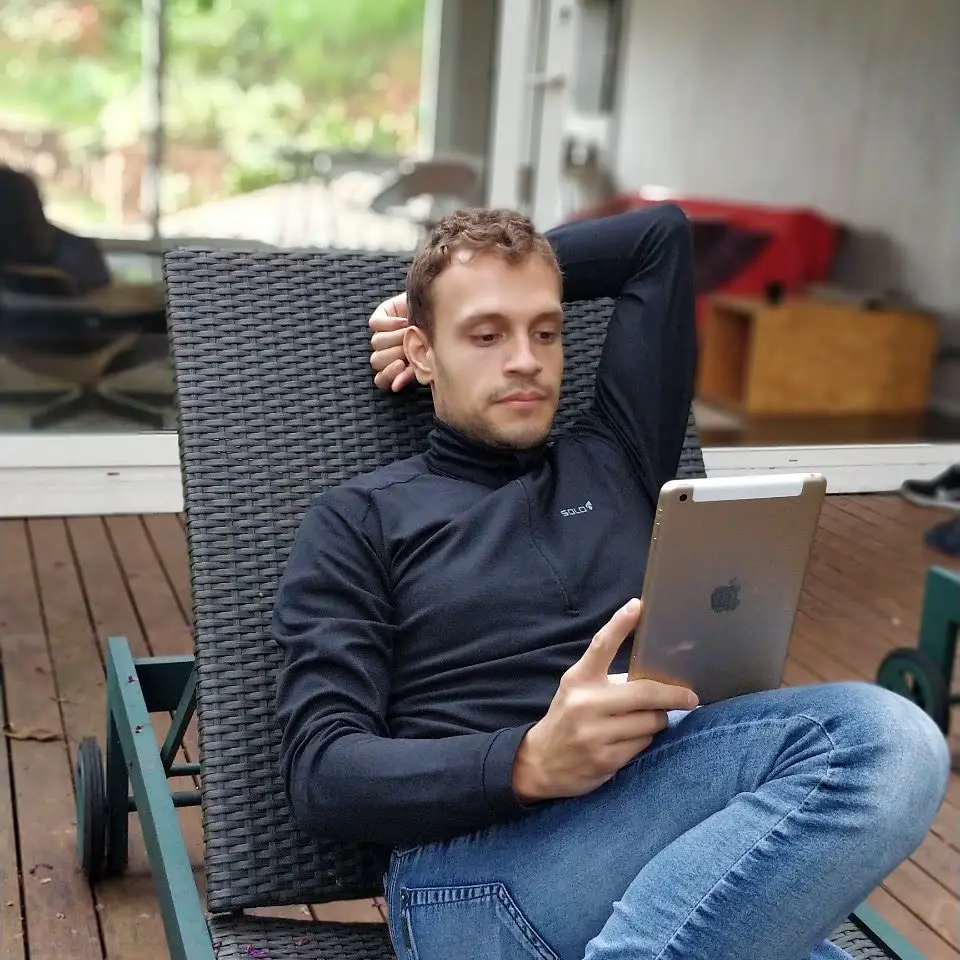Sooner or later, our personal organization will either block us or, hopefully, empower us.
But what does it mean to have personal organization?
I see organization as a series of structures that we create in order to have predictability, clarity and objectivity in our day-to-day actions.
Organization is not something that works the same for everyone, but for the most part, it must reproduce the way we understand the world.
On the one hand, good organization speeds up our work, puts us at ease and makes us feel reassured about the future, on the other hand, bad organization (or the lack of it) makes us feel anxious, incapable and vulnerable.
This article is part of the Challenges of Autonomy series. If you're not familiar with it, here are some of the topics we've already covered:
What is personal organization?
Personal organization is the application of tools and mechanisms to order, prioritize and manage your daily activities. This enables you to follow a better routine and complete your tasks and objectives with greater security and predictability.
For some reason, when many people meet me, they think I'm very organized. When they walk into my room or office and see a certain ‘mess', they quickly question this first judgment.
In fact, determining whether a person is organized or not based on how they set up their physical or online environments is very difficult. After all, good organization for one person can be bad organization for another. Everyone has a different way of looking at life, prioritizing, understanding success, etc.
Naturally, there are countless methodologies and ways of generating clarity, predictability and peace of mind that we can use to help build our organization. In this article I'm going to comment on some of them and also show you how I've solved this organizational challenge.
As self-employed professionals and freelancers, we have to deal with a multitude of totally different tasks every day. Lack of organization complicates – and greatly – dealing with this variety of actions.
That's why I think it's worth taking a break at least once a month to focus exclusively on organizing your personal and professional life.
Everything I'm going to share here is part of what I've learned over the last 10 years about treating organization as a hobby. I love getting organized, looking for new software, trying out methods and testing them not only on myself but also on friends, family, partners and acquaintances.
I'm always looking to develop in this sense, so I'm very open to suggestions and criticism if you feel that any of these suggestions don't help you solve your problems with getting organized.
Personal organization process
I like to think that there is an organization process that goes something like this:
- Mental download
- Understanding the scope
- Categorizing
- Organizing
- Evaluation
- Repeat
I'll break down each point in more detail.
Mental dump
I always like to start the organizing process with a brain dump. This term is translated from the English “brain dump”, which is widely used.
In my opinion, this is the most important technique in the whole process. Here you set aside a good amount of time – from 20 minutes to an hour on average – to get everything out of your head.
Tasks, ideas, stories, reminders, goals or anything else that's on your mind. Everything has to be written down either on paper or in a notebook on your digital device – whatever it may be.
The idea behind this is that a large part of what puts us in a state of disorganization, anxiety or lack of clarity has to do with how much we fill our heads with. We can't think straight with so much information, so we end up needing to unload it all in one place in order to better understand our situation.
Understand the scope of the organization

There's no point in organizing something without understanding exactly what you personally want to organize. Do you want to organize finances? Projects? Work? Travel? Home?
Often we start organizing something and divert our attention to other areas in order to enjoy it or because we simply aren't clear about the scope of what we want to organize.
Rarely will you “organize your whole life” in one go. In general, we limit ourselves to one area so as not to be too complex.
So look at everything you've added to your mental dump and understand which area you want to organize.
Categorization
Within the scope you've chosen, you may well still have some distinct parts that make it up.
Within the financial area, for example, we can have expenses, purchases, plans, income, budgets, tools, accounts, etc. Each of these sub-areas are categories of this scope.
When categorizing, I often remember other things that were in my head that I hadn't previously accessed. You can always add more as you see fit.
Organization
Now we're at the point where we really get down to business. Setting up your personal organization.
When we have everything already categorized and structured in our heads, it's much easier to think of ways to put everything in a scope that we can quickly consult and enjoy.
Still on the financial organization front, we can create spreadsheets of expenses and income, make planning formulas for the coming months, determine how much we will allow ourselves to spend in each budget, install and feed the apps or software that will help us, etc.
Normally, when we're going to organize something, we start there. However, I think it's important to go through the previous stages because it will be much easier to understand what is really important to do so that you have an organized structure. It's a little extra work that will save you a lot of rework, discouragement and, of course, disorganization in the future.
Evaluation
As I said above, we are constantly changing. We learn new things, develop, change our minds, create new projects, etc.
Even more so as self-employed professionals and freelancers, all the time we have new opportunities to improve our business.
From time to time I suggest evaluating your organization to see if it still makes sense. Some categories may not be very useful, other spreadsheets may be missing something. Usually there is always a way to improve our personal organization.
Repeat
Now that you've organized yourself once and understood where there is room for improvement, it's time to repeat the process.
Whether it's for another scope or even the same one, it's worth developing the habit of getting organized.
Software for personal organization
Software helps us organize because it does the hard work that would previously have required a lot of paper, time and thought.
Tables, documents, dashboards, lists, etc.
There are apps for everything and I have to say that testing software like this has always been a hobby of mine. I love accessing new products and understanding how they are solving my organizational challenges.
Something I've been doing lately is trying to organize all the areas of my life in one place.
A somewhat complicated task.
However, I'm already going to recommend one of the best pieces of organization software: Notion.
I won't go into too much detail here, but I've been using Notion to structure all areas of my personal, spiritual and professional life.
In addition to Notion, there are a few others I suggest you take a look at:
Conclusion
In this article I've gone through some of the methods and processes I use today to organize myself and I've also explained why I believe good personal organization helps us.
I want to know if the text made sense to you and also how you organize yourself today. Leave your comments below and we'll continue the conversation there.
Have fun!


